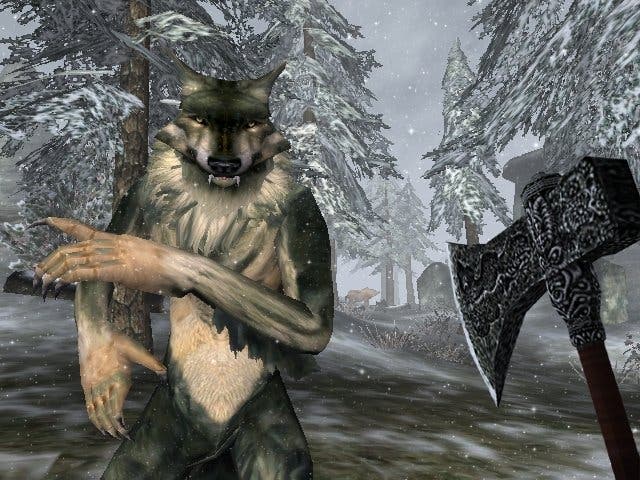Reader Reviews
Soldiers: Heroes of World War II, Morrowind GOTY Edition, Wario Ware, Mashed and DRIV3R all get a grilling courtesy of, well, you.
The Elder Scrolls: Morrowind GOTY Edition (Xbox)
by squaylor

Ever woken up and wondered where you were? Had trouble remembering who you are, or where you'd been? Ever woken up and been prodded off a boat into a census office by an Imperial soldier? Well the first two happen to students all over the world on a regular basis - but all three happen to you only at the beginning of the epic RPG The Elder Scrolls: Morrowind.
In the GOTY edition of Morrowind, the original game comes with the two PC add-ons, Bloodmoon and Tribunal - essentially giving three massive RPG games in one. The two expansion games are aimed at the experienced Elder Scrolls player, so should really be left until Morrowind itself is completed. But the good news is that your character can then be transferred to these expansions before you begin them.
Your game character and abilities are created when you are prodded off the boat in the small town of Seyda Neen on the island of Vvardenfell. This isall you know, and before the main quest can begin, you need to find out where you are, and why. The island is populated by a wide range of RPG-standard races (humans, elves, orcs) - and plenty of beasties to meet your blade (or spells, arrows, or whatever).
Two things immediately strike you about Morrowind - the scenery, and the freedom. Bethesda Softworks have created a truly striking game world for you to explore. The island varies a great deal, from medieval-style fishing villages and castles in the south, to blighted desert wastes in the north. Settlements range from nomadic tents to shelters carved from insect husks or giant mushrooms. One town sits enclosed in a giant crab shell. The NPC's you meet give you advice or trade items, some of them need your help and give you side quests. Depending on what race you play as, some of them may refuse to talk to you unless admired, bribed or threatened.
In terms of freedom, every area of the map can be explored. You can swim to distant islands, dive for pearls, buy a levitation spell and float around. Everything in the game has a value - one of the three main character branches is a thief (the other two, predictably, are fighter and wizard). See a book on a shelf, you can pick it up and read it - some will raise your skills - you can put it back and move on, or snatch it to sell later. If you are seen, either the owner will attack you, or call for help from a guard belonging to one of the island's four House factions. You then have a choice of paying a fine (and surrendering the book), resisting arrest and fighting, or being briefly imprisoned (reducing your skills).
Side quests are not just limited to helping individual locals. Vvardenfell has a number of guilds and factions, all of which can be joined. Rising up the ranks by carrying out jobs gives you valuable money, improves your skills, and makes you explore all corners of the island. Plus it helps you develop a rounded character - prospective wizards will probably want to join the Mages Guild and the magic-oriented House Telvanni, but could also join the Thieves Guild to hone skills used to steal useful magic items, or the Imperial cult to keep an eye on the Roman-style occupiers of Vvardenfell. The combinations of choice are endless.
The negative points of the game? Well, it is a bit buggy - although Bethesda should be given credit for addressing the appalling bugs that ruined the earlier edition of Morrowind - the GOTY version is much improved. The large, sprawling cities of Vivec and Mournhold suffer from horrendous pop-up - even out in the country whole mountains seem to appear from nowhere. The combat engine can be a tad ropey - often fighting is a case of repeated hacks with the right trigger until someone dies. Firing bows can be a hit or miss affair (pun intended). Airborne foes take many swipes before a hit is even registered (like the ever-present birdlike cliff racer, which I quickly grew to hate).
But these are only minor quirks really. The scenery is so well done this reviewer can forgive the pop-up, and the fighting gets easier with practice. The interesting main story, of islanders trying to throw off their occupiers, draws you in the more quests are completed and more information gleaned. The numerous small details really stand out - NPC's trusting you less if you approach them with sword drawn, or trusting you more if you are wearing a nice outfit, for example. They make the game interesting, make you want to continue and explore a bit more, get to the next village on your map, go into the game world a bit more. And at the end of the day, isn't that all you want from an RPG?
